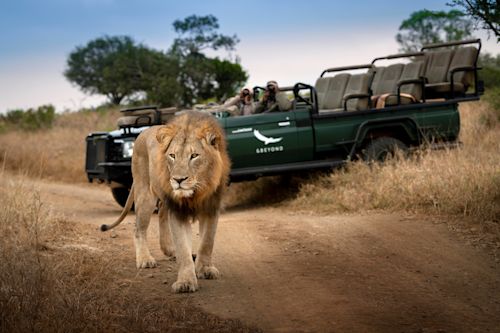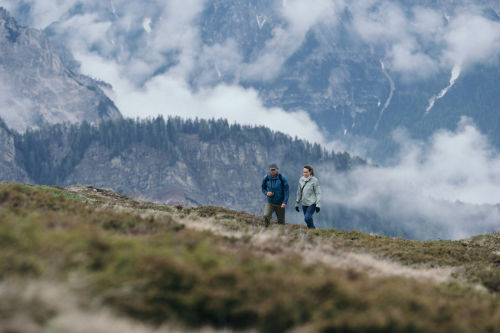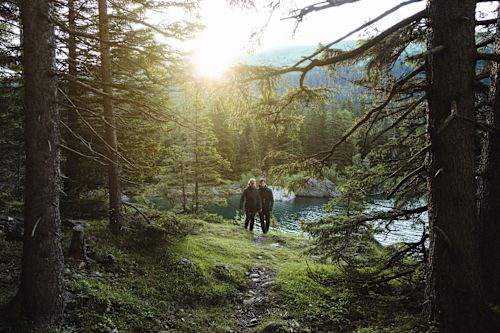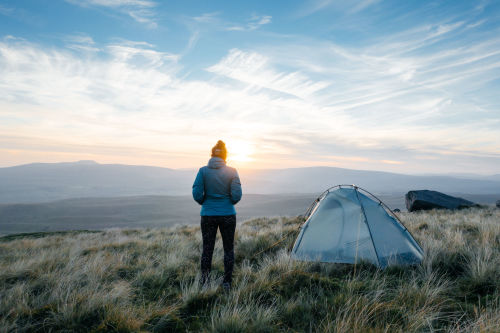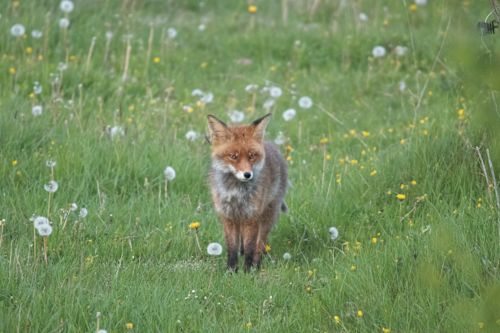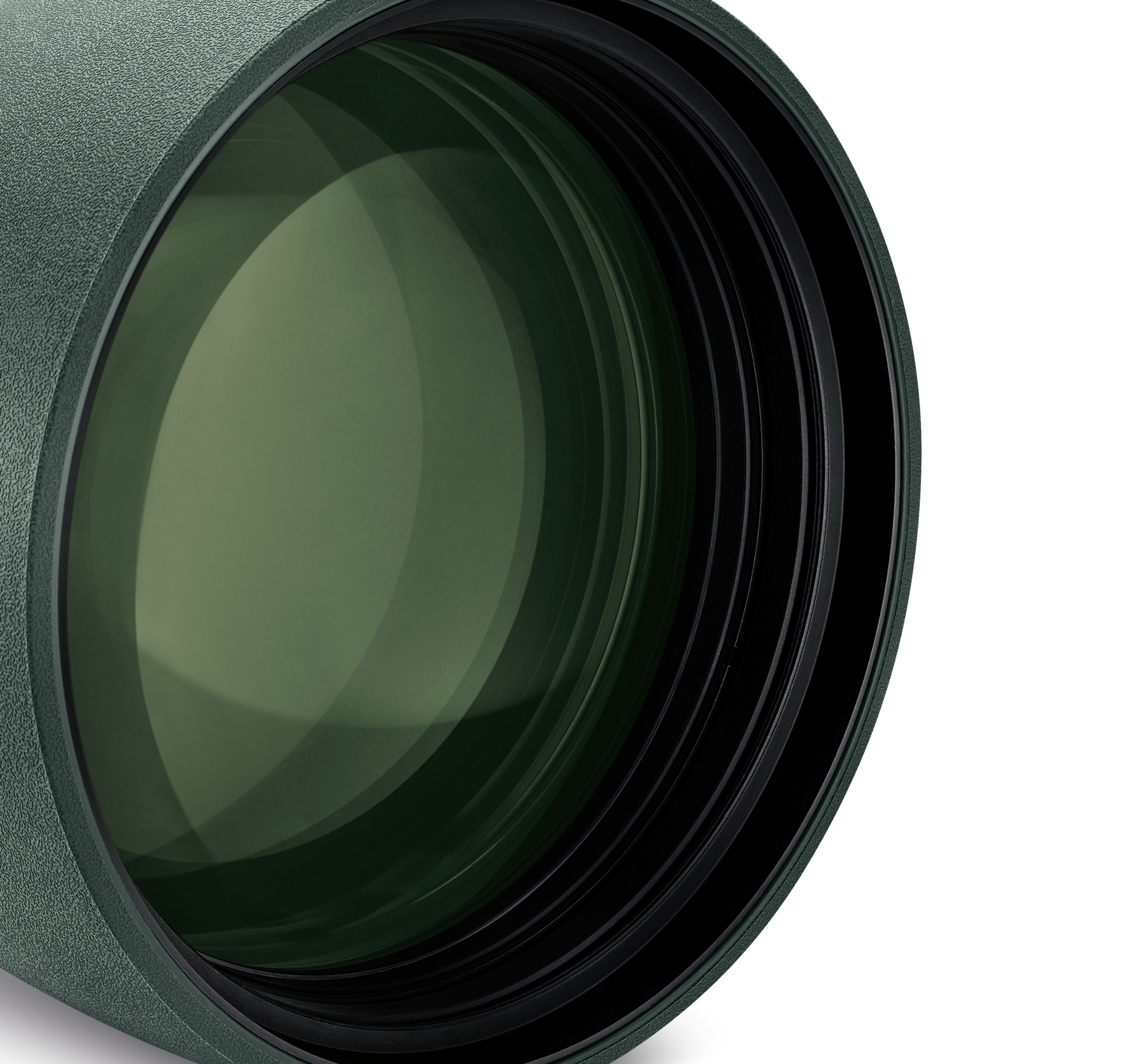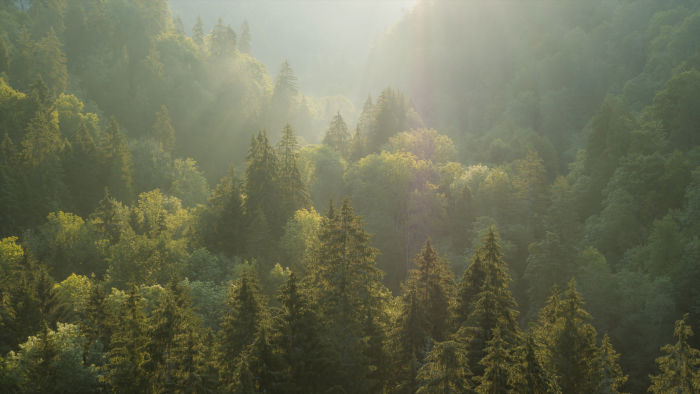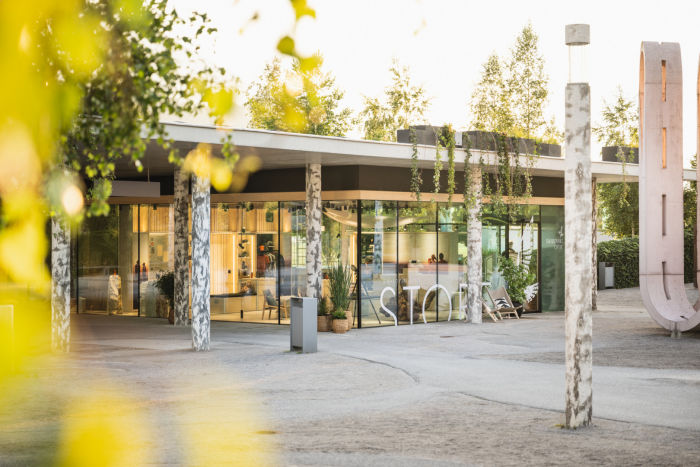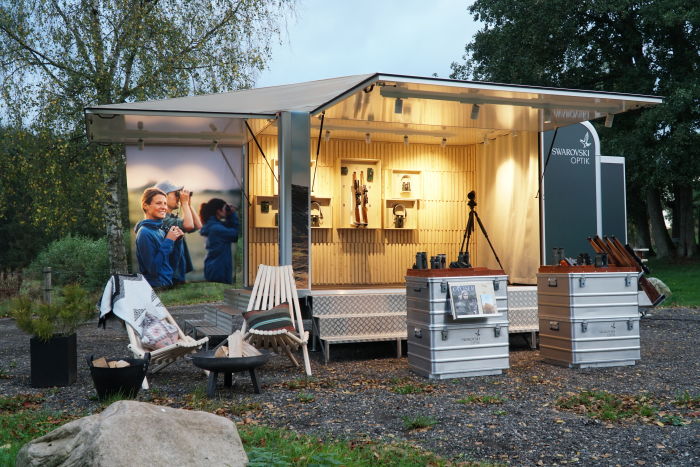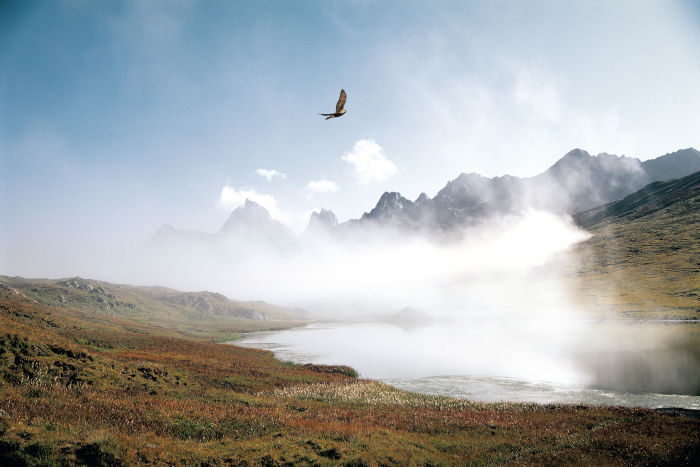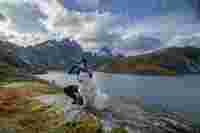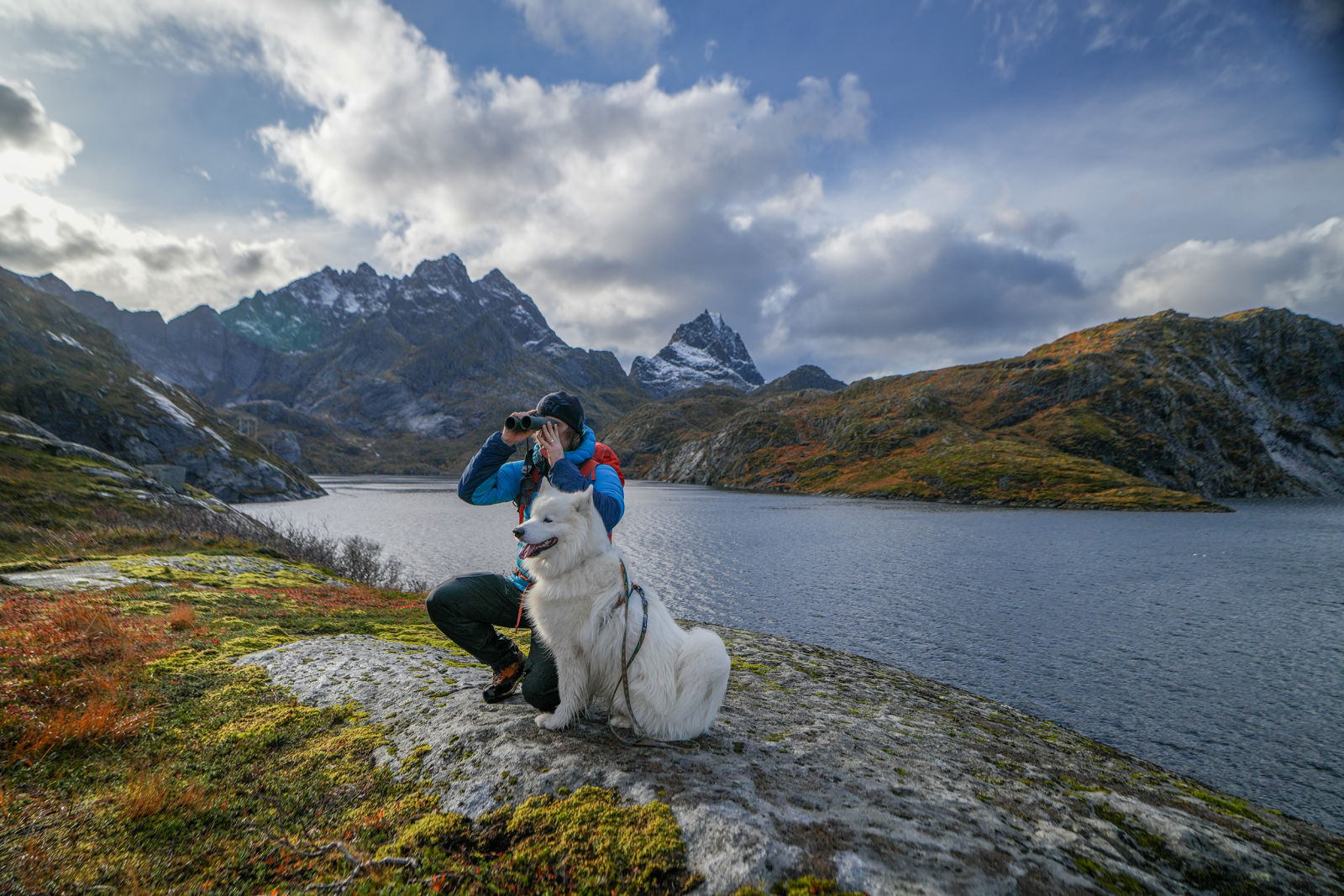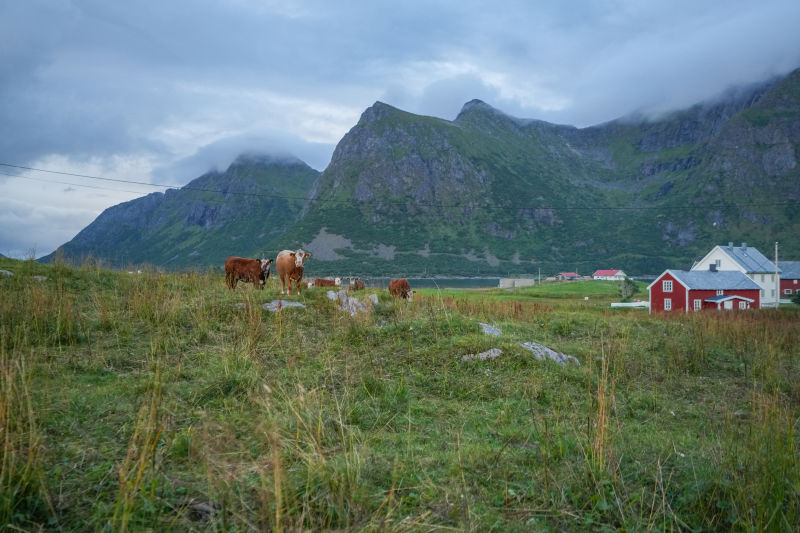When the first birch leaves turn gold, the Arctic terns head south, marking the shift of seasons in Lofoten. Two weeks earlier, the mountain hares—snowshoe variety—sat in liminal transition, caught between their summer stone-colored coats and the snowy white they’ll wear through winter. The forests, now on the cusp of change, burst at their arboreal edges with song. This is home.
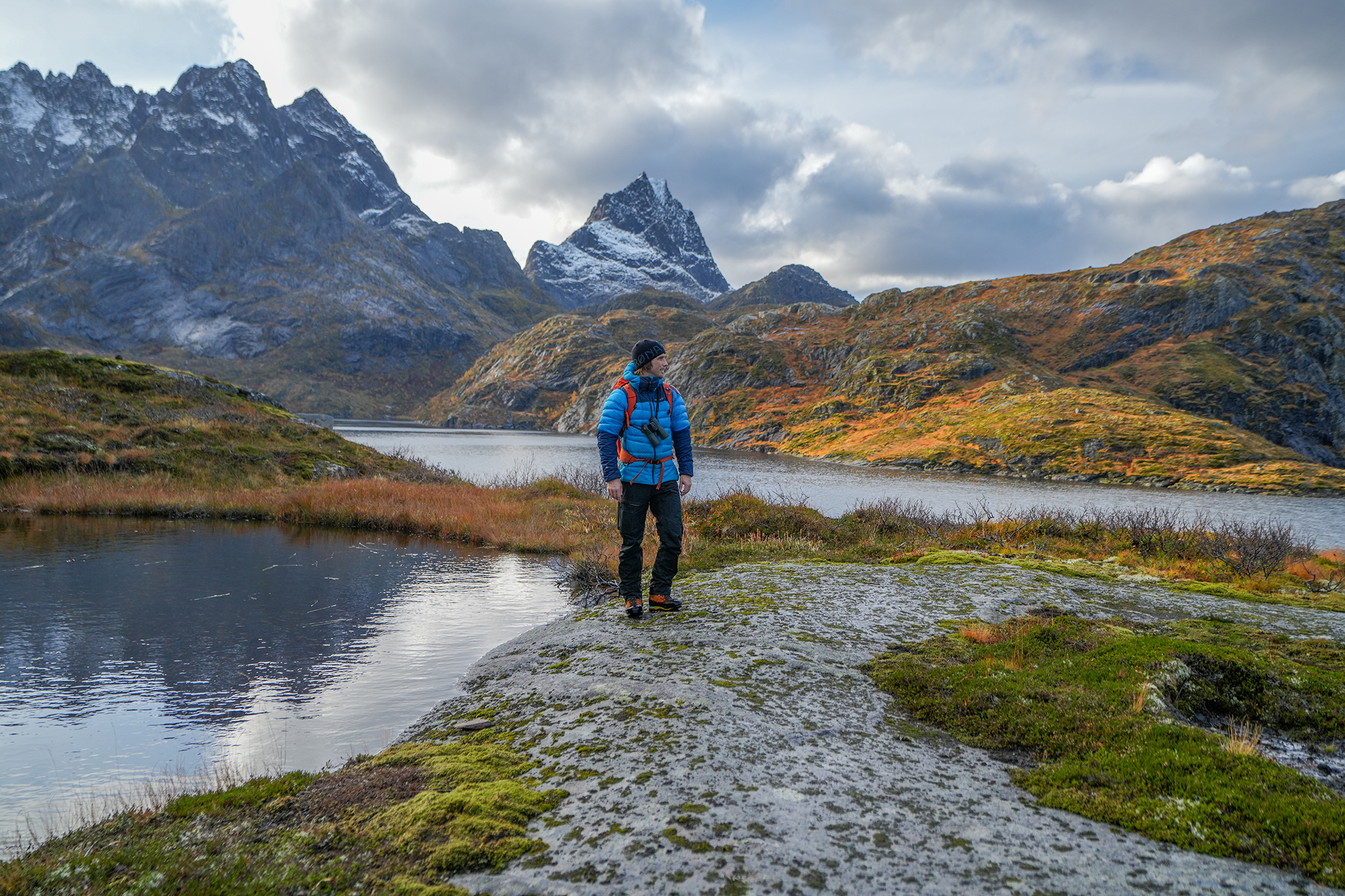
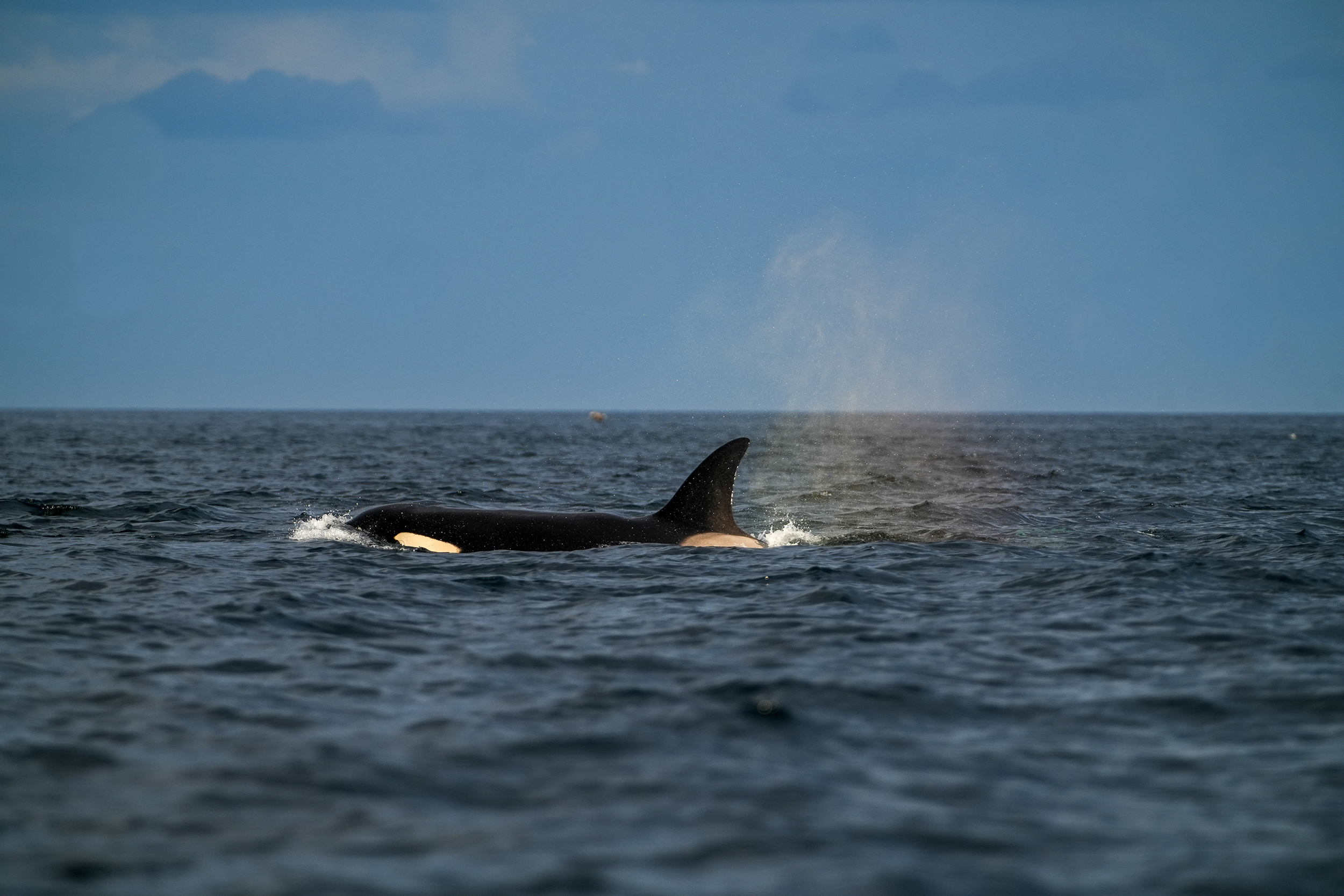
As the midnight sun fades and summer slips away, Lofoten’s fall season unfolds with a quieter, yet equally captivating energy. By the end of September, the sheep that spent their summer grazing in the highlands return to the fields surrounding the village, their wool thickening in preparation for the coming cold. The birds that once filled the summer skies—arctic terns, meadow pipits, oystercatchers, golden plovers, common gulls and Eurasian curlews—have mostly moved on, their songs fading as they head south with the changing light.
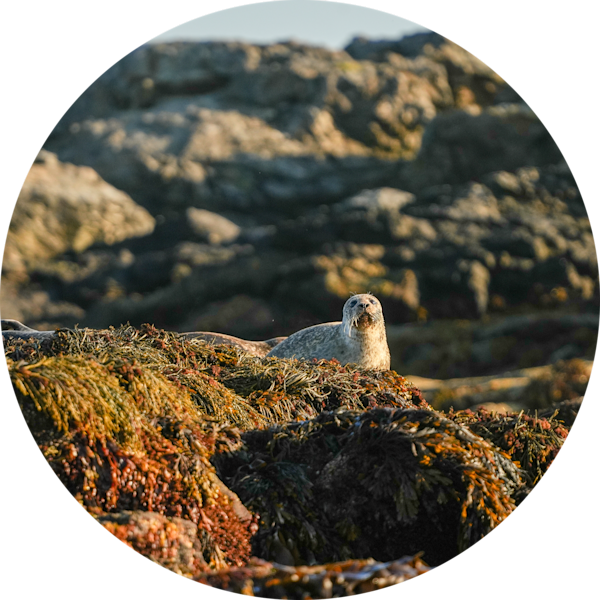
#generationnature
A Landscape Alive with Change
Even with fewer birds and animals around, life still pulses through the landscape. The rowan berries hang, suspended like red lanterns, bright against the golden birch leaves that light up the hillsides. Offshore, orcas continue their pursuit of silver fish, while on the rocky outcrops and skerries, European shags and black backed gulls rest between fishing trips, and white-tailed sea eagles soar above, scanning the fjords for their next meal. The landscape, though quieter, feels full of purpose, as every creature prepares for the long winter ahead.
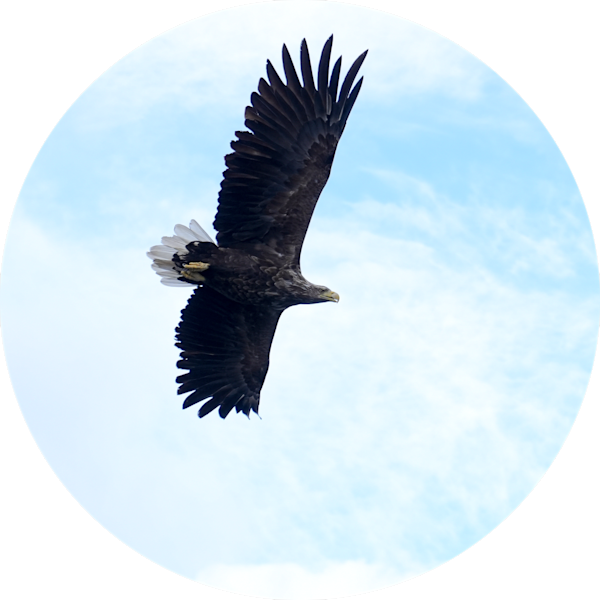
#autumnhues
Migration and Global Connection
With the shift in seasons comes new arrivals. Winter gulls like the black legged kittiwake, gather along the coasts, their calls carried by the wind, while common redpolls fill the dunes with their constant chatter. If you pay attention, you’ll notice the subtle shifts in the animal world. Snowshoe hares begin swapping their summer brown coats for their winter whites, blending into the first patches of snow that dust the hills. Short-tailed weasels also don their winter whites, blending seamlessly into the frosty surroundings. Moose, too, are on the move, as the rut begins, and fresh tracks appear in places where they’ve gone unseen all summer.
Migration is in full swing, with songbirds like reed buntings, yellow browed warblers, chiffchaffs, redwings, and fieldfares moving south. Watching them pass through is a reminder that even in this far northern place, life is connected to warmer, sunnier regions across the world. A river of birds binds us.
Snow-Covered Peaks Signal the Seasons changing
By the end of September, snow begins to settle on the highest peaks, marking the first signs of winter’s approach. Hiking through the mountains at this time is like stepping forward in time, as the higher you climb, the closer you get to winter’s embrace. Snow-covered ridgelines appear, offering a glimpse of what’s to come. And as you descend, you return to autumn—hills still rich with August blueberries, mushrooms nestled under birch, and the rustling of migrating birds moving through the forests.

Living in a village of just 12 people, 5 dogs, and a few hundred sheep on this remote Norwegian island teaches you something profound—you don’t live in the middle of nowhere, but at the center of everywhere. The pace of life here is dictated by nature, and to thrive in this environment, you must be fully present. The wildlife knows this well—each animal, from the hares to the redpolls, move with the seasons, in tune with the rhythms of the land. The pace of life is fast in the north, and if you don’t take time to savor the moment, the season will have passed before you even notice it. Though the days grow shorter and quieter, Lofoten’s fall is alive with movement and change. From the animals preparing for winter to the shifting light and weather, the landscape is a constant reminder of the beauty in transition. For outdoor enthusiasts, fall in Lofoten offers a chance to slow down, pay attention, and immerse yourself in a place where nature’s rhythms are on full display. It’s a season of preparation, but also of immense beauty, as the land readies itself for the long Arctic winter ahead.
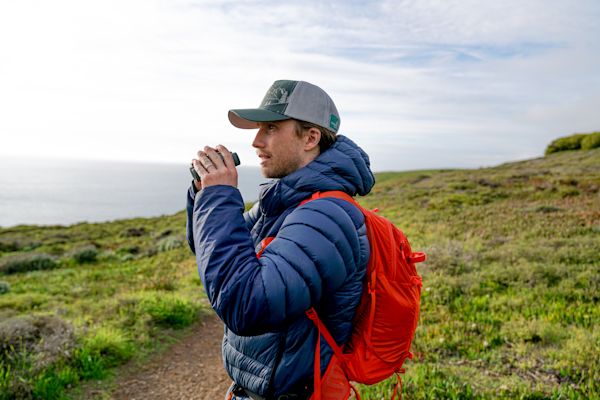
About the Author:
Charles Post
is a Norway based ecologist, Explorers Club Fellow, and award-winning filmmaker with a love for birding and exploring the outdoors with his wife, Rachel Pohl and their Samoyed, Mr. Knute. Following nearly a decade of field work and studies at U.C. Berkeley, earning his bachelor and master’s degrees in ecology, Charles embarked on a creative journey, spanning topics from the decline of kittiwakes in the Norwegian arctic to the beauty and fragility of migrating raptors across North America.
For more information and fascinating adventures visit his Instagram account: @charles_post.
